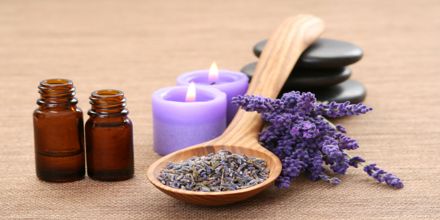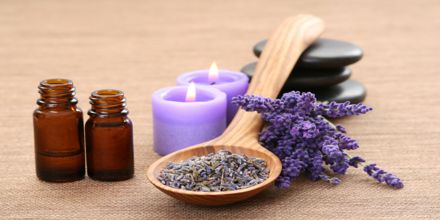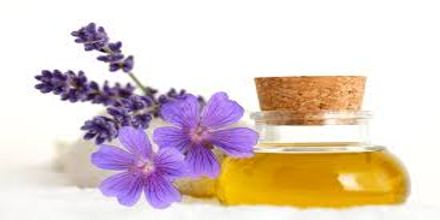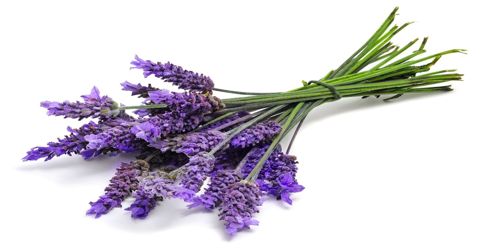Lavender is the mainly flexible of all essential oils. Most frequently known for its soothing possessions on the body, therapeutic-grade lavender has been greatly regarded for the skin. It may be used to cleanse cuts, bruises and skin. People regularly combine lavender with two definite traits: its fragrance and its color. But you possibly will not know that the lavender flower and the oil derived from it have long histories in herbal medicine. Since ancient times, lavender has been used to treat many dissimilar ailments, including: mental health issues, anxiety, insomnia, depression, headaches, hair loss, nausea, acne, toothaches, skin irritations, cancer etc.

The many uses of lavender
Lavender is a versatile plant. People use lavender in much conduct to promote good health and well-being.
Aromatherapy
Lavender is most usually used in aromatherapy. The fragrance from the oils of the lavender plant is believed to help endorse calmness and wellness. It’s also said to help decrease stress, anxiety, and perhaps even mild pain.
Sleep aid
Once upon a time, lavender was suggested for people distress from insomnia or other sleep disorders. People overfed their pillows with lavender flowers to help them fall asleep and get a better night’s rest.
Massage therapists sometimes apply lavender oil to the skin, which might function both as a calming agent and a sleep aid. In Germany, lavender tea has been accepted as a enhancement to treat sleep disruptions, restlessness, and stomach irritation.
Skin and hair conditions
Current use of lavender oil might help to treat a disease called alopecia aerate, which causes a person’s hair to fall out in patches. Some people experienced hair regrowth over the course of seven months. However, there was no way for the researchers to determine which of the oils was accountable.
Eczema / Dermatitis
Mix several drops of Lavender oil with a nut or vegetable mixing oil (coconut, sesame, etc) and use topically on eczema and dermatitis.
Nausea or motion sickness
To alleviate the symptoms of motion sickness, place a drop of Lavender oil on end of tongue, behind the ears or around the navel.
Dandruff
Rub several drops of lavender oil into the scalp to help eliminate dandruff.

Lavender – Remedy for many health problems
Aching Muscles: If you’ve spent a back-breaking afternoon in the garden, jump into a lavender bath to soothe aches & pains away. Apply Epsom salts & a few drops of Lavender Oil to the bath and soak away the tension.
Cuts & Wounds: Apply lavender oil to sooth pain, prevent bacterial infection and aid scar-free healing. Apply neat.
Earache: Warm a bottle of lavender oil in hot water for a minute or two, then gently massage a few drops into the skin around the ears and throat. For babies & small children, add 2-3 drops of the warmed oil to a little olive oil and massage in the same way.
Eczema: Stroke infused lavender oil (a few drops of lavender oil & carrier oil) into dry, itchy skin—small children will find this especially comforting or add a few drops of lavender oil to calamine lotion, shake before use.
Fatigue: Add 5 drops of lavender oil to a hot foot bath and relax while your feet soak in it. The soles of the feet are particularly porous, so lavender reaches your bloodstream very quickly, exerting its stimulating and soothing effects on various systems of your body.
Fevers: For babies or small children, sponge them down very gently with tepid water to which you have added a drop of lavender oil. Take care not to let them get chilled. This works for adults too.
Insomnia: In a number of small studies, elderly psychiatric patients have been shown to sleep better and be more alert during the day when their sleep medication is replaced with lavender oil either dropped on their pillows, or placed in a diffuser on the ward. To help to induce sleep, put 3 or 4 drops of lavender oil on your pillow. For babies, add 1 drop of lavender oil & geranium oil in carrier oil and massage into a babies back or a few drops in their bedtime bath.

Benefits of Lavender Oil:
It is one of the most powerful remedies in the plant world, offering both physical and emotional relief for problems as varied as burns, migraines, insomnia, insect bites, skin problems, infections, stress and nervous tension. It owes this amazing spectrum of healing powers to its complex chemical makeup.
Lavender Oil Properties: Antidepressant, Analgesic, Antiseptic, Cicatrizant, Expectorant, Nervine, Vulnerary etc.
Especially beneficial to the respiratory tract in particular coughs, colds, influenza. Certainly eases breathing when lungs and sinuses are choked with phlegm.
Lavender Bath: Excellent for aching muscles, relaxation, stress relief. Add 6-8 drops Lavender essential oil after running the water and vigorously agitate water. Add the drops to a capful of milk or Epsom salts and then put in the bath as this helps to disperse the oils through out the water.
Lavender Massage
This is a particularly effective way to apply the oils when you have tight and sore muscles or have sustained an injury. The oils will be absorbed quickly into the blood stream, thus assisting the body and mind.
Lavender Cultivation
Lavenders demand full sun, although afternoon shade may be appreciated in the hottest climates. Plants are very drought resistant once established, but will flower better if not allowed to dry out.
Fertilizer: Supplemental feeding is not necessary as Lavender prefers a lean soil, although plants appreciate an occasional side dressing of compost. Perfect drainage is a must, especially through the winter; plants will die in wet soils.
Harvesting and Using Lavender: Flower spikes have the strongest scent just as the pretty little flowers begin to open. Cut long stems and gather in bunches to dry out of the sun – this will take four to five days in warm weather. Spread stems on a screen or sheet so air circulates easily.
Reflowering: If old flower spikes are sheared off after the first bloom period, a second flush of flowers may occur later in the season.
In Summary
- Lavender flower and the oil derived from it both have a long history in herbal medicine.
- Lavender is most commonly used in aromatherapy. Fragrance from the essential oils of the lavender plant is believed to help promote calmness and wellness.
- While many people swear by its aromatic healing powers, the scientific community is skeptical. Many of the tests conducted around lavender have had conflicting results.
















